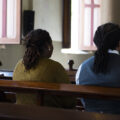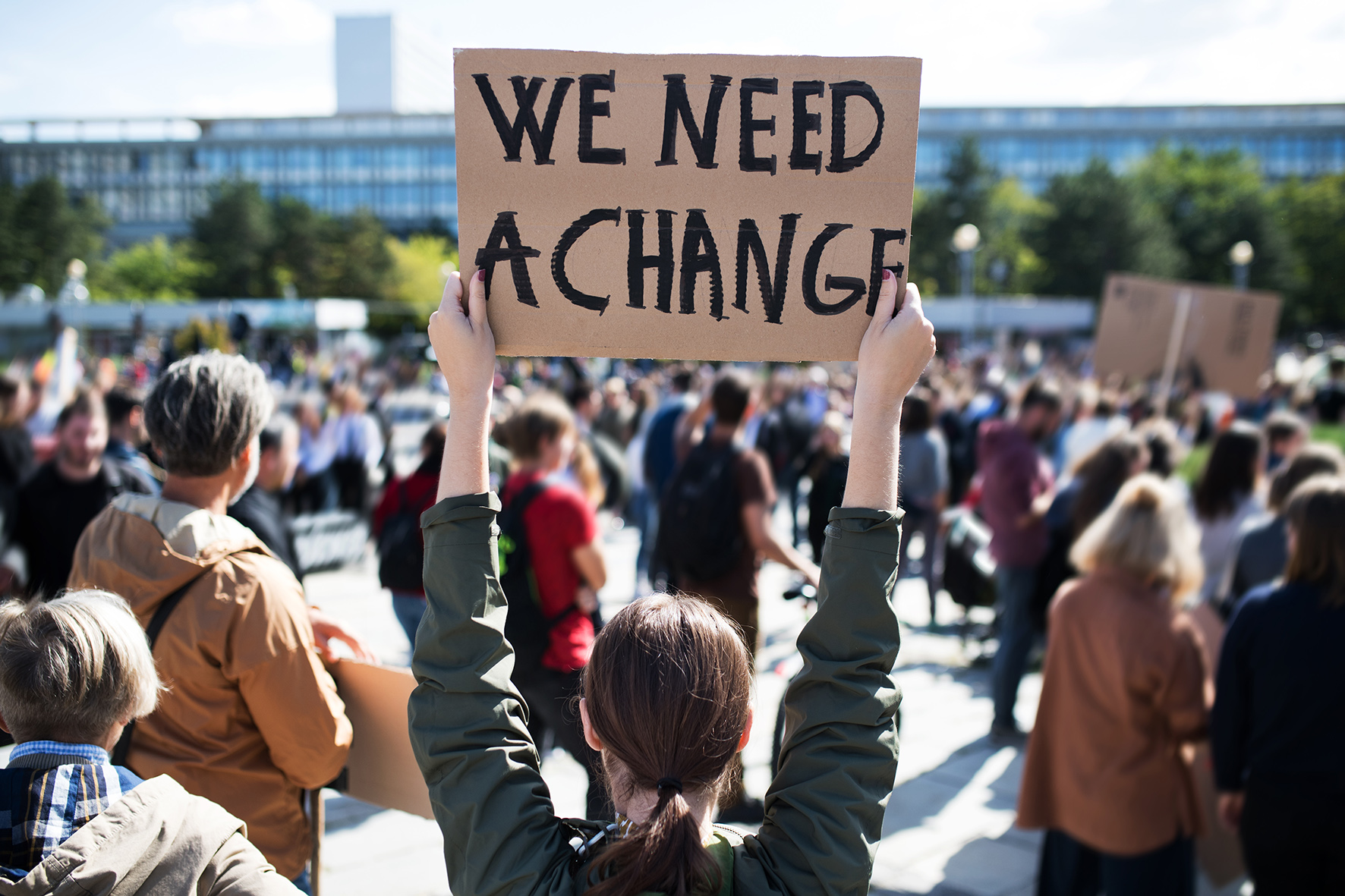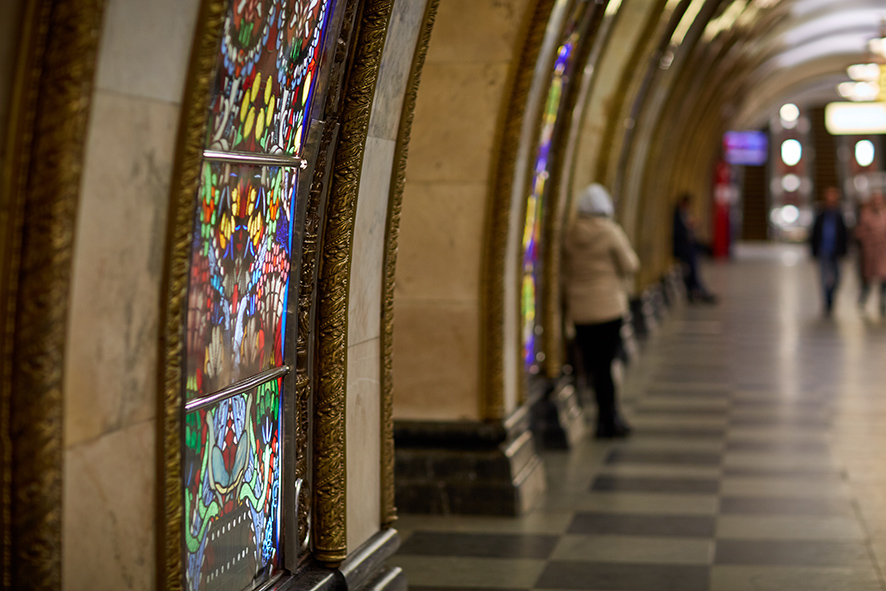Black lives matter in the Church of England?
Black lives matter in the Church of England?
The movement sparked by George Floyd’s murder has reached Europe. Several Church of England bishops in the UK have supported calls for a racially just future. But the genuineness of the Black Lives Matter support has been questioned by many within the church. Will the Church of England heed these criticisms and take more substantial action?
Religious leaders across the globe have put out statements, joined protests, and established anti-racism working groups in response to the racist murder of George Floyd in Minneapolis. In the US, even some of President Trump’s most ardent supporters have condemned racial injustice, such as Joel Osteen, a Texas megachurch pastor. He marched alongside protests in Houston and declared: “We need to stand against injustice and stand with our black brothers and sisters.”[1] But the contradictions, some would argue hypocrisy, in these actions are also clear. Many religious leaders supporting the Black Lives Matter movement have failed to counter racism within their communities and beyond. As the protests moved from the US to the UK, we began to see critiques of similar contradictions of religious institutions there, such as in the Church of England.[2]
Systemic exclusion
The Church of England hierarchy has been questioned by some for releasing statements in support of the Black Lives Matter movement, particularly because they have failed to recognise and combat systemic racism within the Church. For instance, Augustine Tanner-Ihm, a black trainee priest, who was refused a curate position, tweeted his rejection letter on 4 June 2020, which stated, “the demographic of the parish is monochrome white working-class, where you might feel uncomfortable.” Tanner-Ihm called out church leaders for their hypocrisy, remarking on Twitter: “Bishops make statements [on] #BlackLivesMatter this week…I guess not all black lives matter.”[3] As another example, John Sentamu, the recently retired former Archbishop of York and the UK’s first black archbishop, personally experienced and often spoke out against racism within the church.[4] His 2019 book Wake Up to Advent! condemned discrimination against black clergy members.[5]
Lack of diversity
Critics also note the lack of diversity within the Church. Rev Arun Arora, a vicar in Durham and the former communications director for the Church, wrote an opinion piece for the Observer (the Guardian’s opinion pages), asking: “How can the Church of England speak about race when its leaders are so white?” Arora cautioned that with the retirement of Dr John Sentamu from his position as archbishop of York, there will be no Black, Asian, and minority ethnic (BAME) diocesan bishops left in the Church.[6] This would amount to a grave failure, Arora argued: “When diocesan bishops next meet and discuss their response to the events in America, [and] the disproportionate impact of COVID-19 on BAME communities…there will be no one of colour with an equal voice among them.”[7] Furthermore, although the installment of Rose Hudson-Wilkin as the first black woman bishop in the Church in November 2019 was praised by many, including Sentamu, Hudson-Wilkin herself acknowledged: “I’m Britain’s first black woman bishop and I long for the day when that’s not unusual.”[8]
Repent and take action
In recent years, the Church has taken significant steps in its fight against racism. In February 2020, the Church’s ruling body apologised for its racist history vis-à-vis its treatment of the “Windrush generation,” Commonwealth citizens who moved to the UK from the Caribbean between 1948 and 1971.[9] The installment of Rose Hudson-Wilkin, who is a child of the Windrush generation, although much delayed, nonetheless represents a major turning point for the church. Moreover, the archbishop of Canterbury Justin Welby has been quick to acknowledge systemic racism in the church, noting in February 2020 that the Church is “still deeply institutionally racist.”[10] More recently, responding to the murder of George Floyd, Welby tweeted, “The racism that people in this country experience is horrifying. The church has failed here, and still does, and it’s clear what Jesus commands us to do: repent and take action.” Recognising this need to self-reflect and act, the bishop of Loughborough Guli Francis-Dehqani, who was appointed by the Church in 2017 to spearhead efforts in support of BAME clergy in the diocese of Leicester, has called for an investigation into the Church to expose racism in its system.[11]
A racially just Church?
The movement sparked by George Floyd’s murder may force Anglican Bishops to take more substantial action in the fight against racism. Black church leaders across the UK have called for urgent action, such as Pastor Agu Irukwu of the Redeemed Church of God, who demanded that churches commit to “concrete action” and “leveling the playing field”.[12] Dipo Oluyomi, head of the Kingsway International Christian Centre, one of the largest black majority churches in the UK, also called on churches to be “the first to set an example of intolerance for racism.”[13] Perhaps, as Bishop Francis-Dehqani hopes, the Church of England will finally heed these calls to action, and open itself fully to a more racially just future.
Olivia De Silva and Muhammad Faisal Khalil
Want to know more about similar topics? Create an account on our Dashboard and receive free updates.
[1] After George Floyd’s death, a groundswell of religious activism
[2] After George Floyd’s death, a groundswell of religious activism
[3] C of E accused of ‘utter hypocrisy’ over backing for Black Lives Matter
[4] Beaten in Uganda, abused in the UK: John Sentamu’s long struggle against injustice
[5] John Sentamu: Racism is still a big issue in the Church of England
[6] How can the Church of England speak about race when its leaders are so white? | Arun Arora; Top C of E cleric slams church for ‘monochrome’ leadership; John Sentamu: I would join George Floyd protests
[7] How can the Church of England speak about race when its leaders are so white? | Arun Arora
[8] ‘I’m Britain’s first black woman bishop and I long for the day when that’s not unusual’
[9] Church of England is ‘deeply institutionally racist’ – Welby
[10] Church of England is ‘deeply institutionally racist’ – Welby
[11] C of E must investigate systemic racism, leading BAME bishop says
[12] UK institutions need more black people, says Pentecostal church leader
[13] UK institutions need more black people, says Pentecostal church leader






